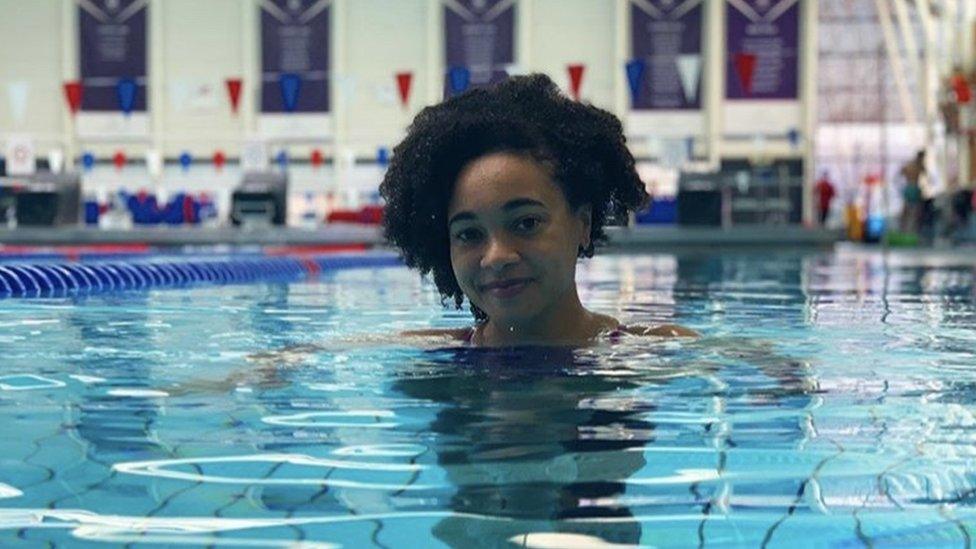Bristol swimming club project to increase black swimmers
- Published
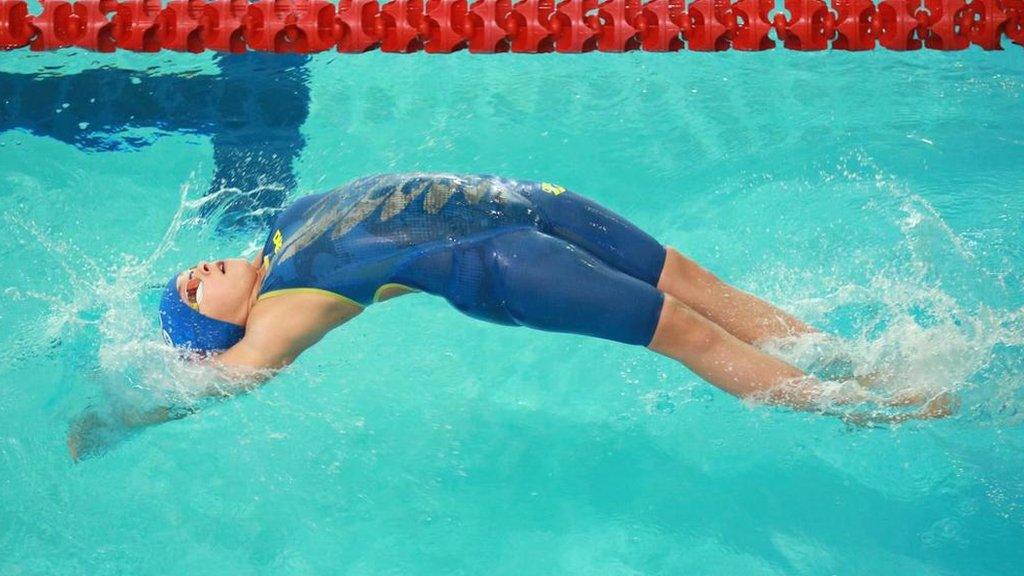
Diversity in swimming has always been limited, not just in the UK but on a global scale.
Research from the Black Swimming Association shows that 80% of black children and 78% of Asian children in England do not swim.
According to the World Health Organisation, the risk of drowning is higher amongst minority ethnic communities.
Barriers include socio-economic factors, transport and a lack of cultural awareness around the importance of swimming as a life skill and a sport.
It's also an expensive sport that has historically seen racial segregation and discrimination in countries like South Africa and the United States.
But, one Bristol club is hoping to change all that.
The City of Bristol Aquatics Club has introduced a number of schemes to increase uptake among BAME swimmers.
One of them is a guide for school teachers on how to spot and signpost children doing well in swimming lessons, which has been rolled out to secondary schools across Bristol.
They've also introduced funding for some swimmers, carpooling for parents struggling to get a swimmer to lessons, guidance on skincare and hair care packages and a buddy programme to help new joiners.
Andrea Brown joined the club as a volunteer before becoming a lead on its inclusion and diversity team.
Her two children both now swim for the club.
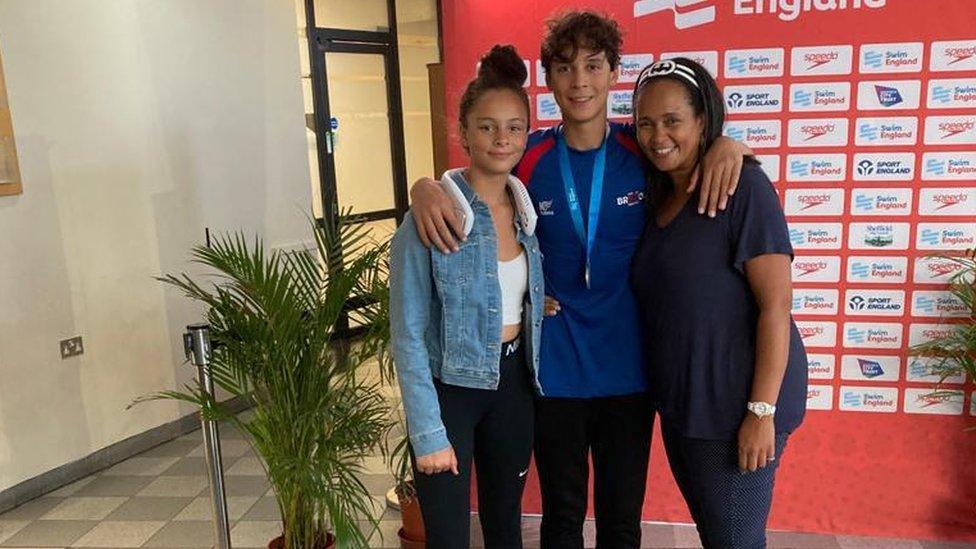
Siblings India (left) and Jack with mum Andrea Brown (right)
She believes the way forward is to appreciate and welcome differences so swimmers see that increased representation.
She said: "As a black British single mum to two competitive swimmers I am really proud to be part of a club that believes diversity and inclusivity is important."
She said she had been moved by the documentary Blacks Can't Swim, external which highlights some of the barriers for young black people and their parents around swimming.
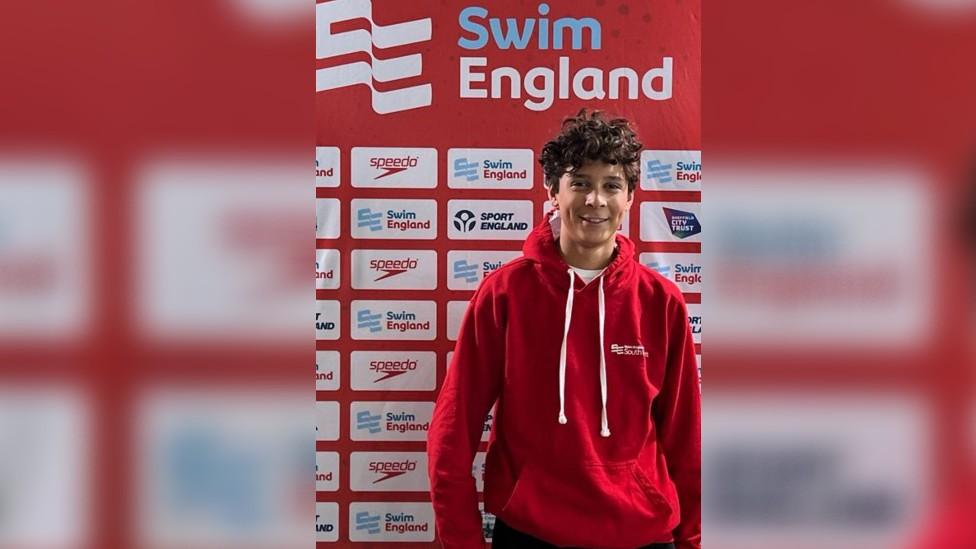
Jack Brown 15, sat his GCSE Maths when he was 10, A-level Maths when he was 12 and currently doing Physics, further Maths and computer science
Andrea and her children Jack, 15, and India, 12, moved from Gloucester to Bristol to train.
Since the move Jack's progress has hugely advanced after qualifying for English Nationals and winning two silver medals.
He said: "Before I joined COBAC, I wanted to quit swimming and I never thought I would make it to nationals.
"No other coaches have believed in me and encouraged me the way that Marc and Lisa have."
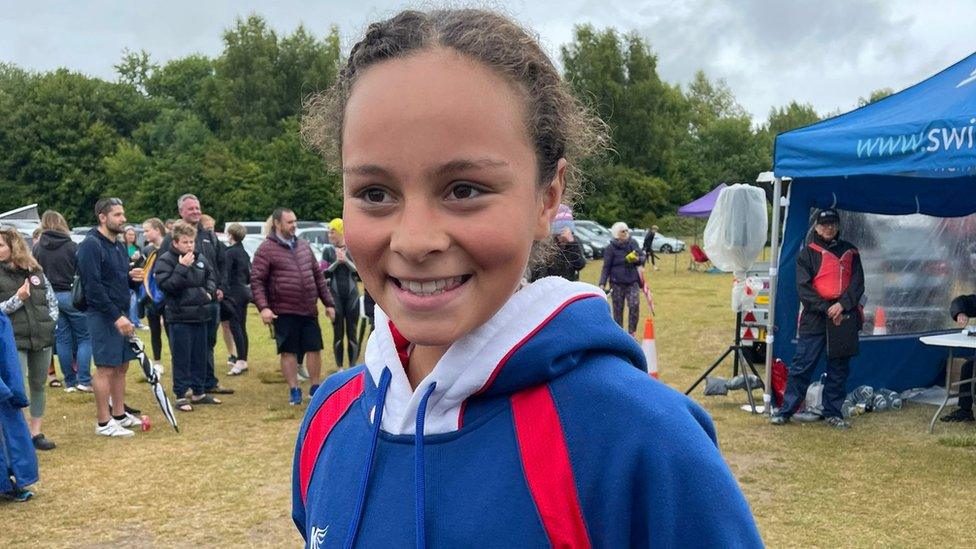
India Brown competed in open water nationals at aged 12 and came fifth in the country in her age category
India enjoys swimming and also competed in open water nationals aged 12 and came fifth in the county in her age category.
She said: "We're all different and that's the fun part.
"The friends I have at the swimming club made me feel welcome from day one."
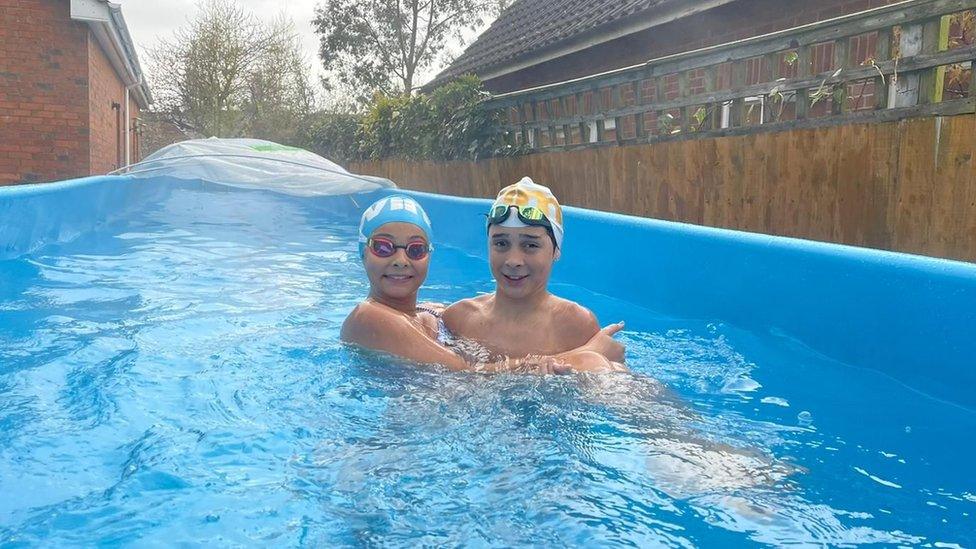
Siblings Jack (right) and India (left) are competitive swimmers who have progressed in swimming since joining City of Bristol Aquatics
The effect of chlorine on hair is a frequently voiced concern, Mrs Brown said.
"One of the biggest barriers is hair that people just don't understand but as a black woman it's a nightmare," she said.
"You have an expensive hairdo, your hair is already dry to begin with, it looks different to everyone else and it doesn't recover in the same way.
"Unless you help people to navigate that, they often have a memory and a history of bad experience of swimming related to something like that."
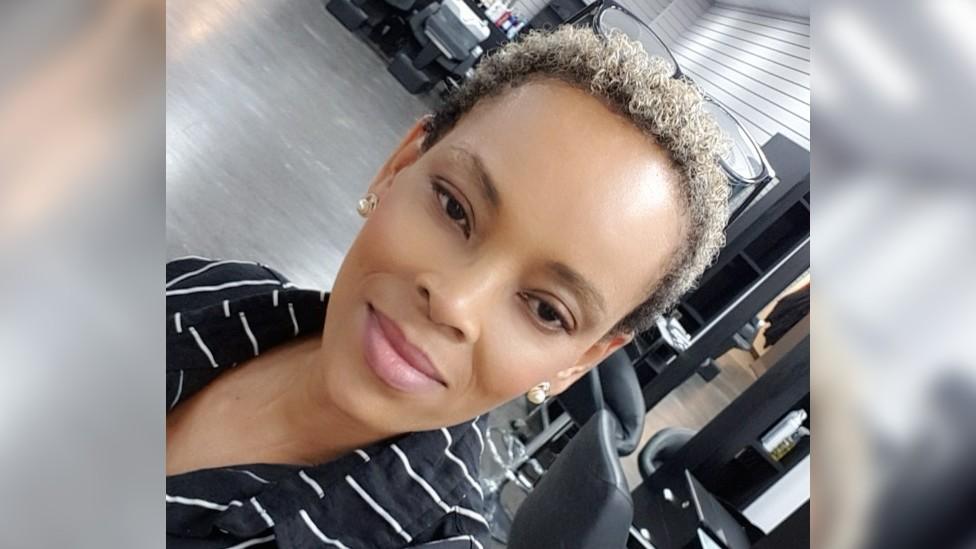
Suzette Pires works from Hush in Bristol Galleries as an independent hairstylist with years of experience with Afro hair
Swimming can actually be more damaging to afro hair than non-afro hair, because of a substance used in swimming pools called sodium hypochlorite, more commonly known as bleach.
The club has collaborated with hairdresser Suzette Pires, 44 who specialises in afro hair to deliver virtual and in person advice on hair care for free.
She said: "Having big hair shouldn't stop anyone from doing what you love.
"There's so many ways to work around hair, making it a routine is essential for protection from water damage."
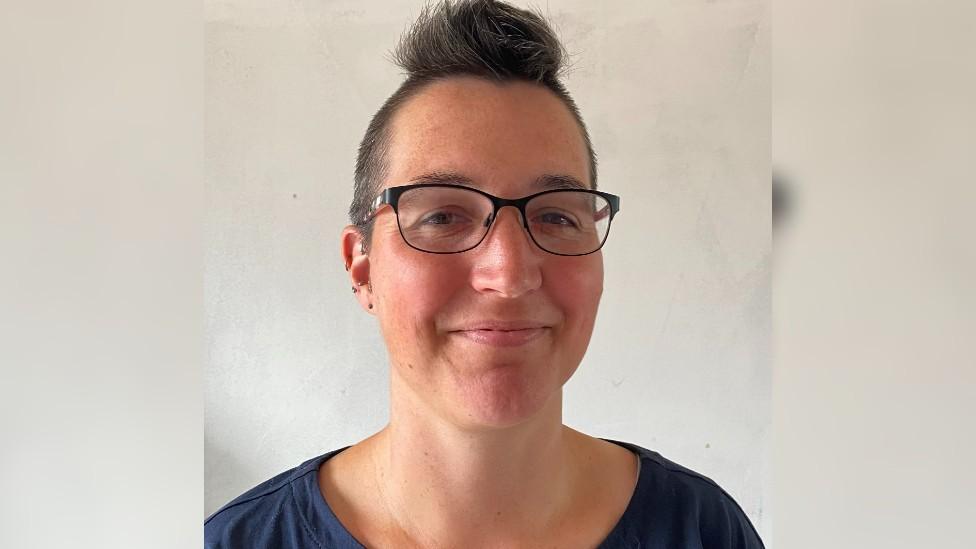
Lisa Atkinson is a coach at City of Bristol Aquatics
Coach Lisa Atkinson said the club has seen "younger swimmers coming through" since working with Andrea.
She said: "We are working hard to get the message that swimming is an accessible sport.
"A lot of the coaches are white so it is important to understand."
City of Bristol Aquatics Club was developed in 2016 as part of a remit with Bristol City Council to improve swimming access to BAME people.
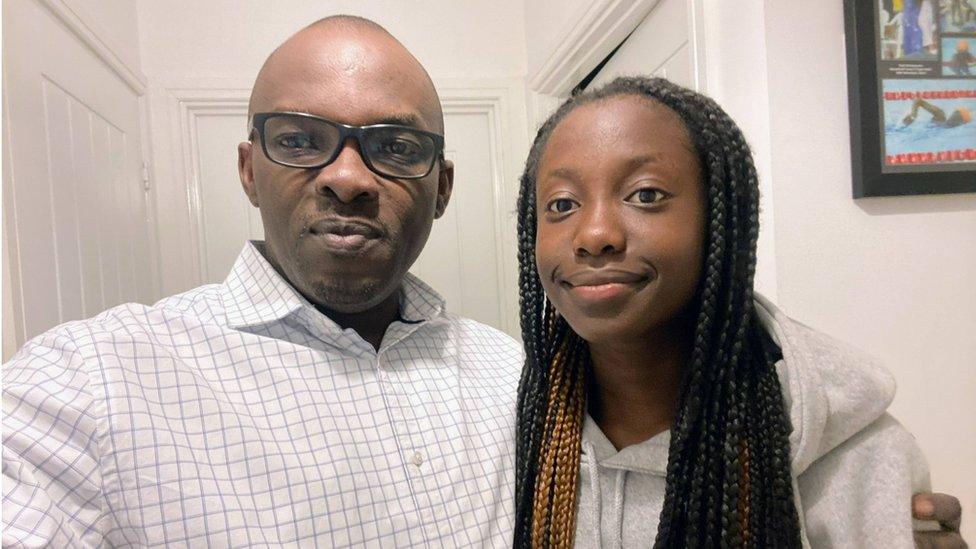
Abiodun, Tami's father (left) believes that family support and role models are important to encourage more young Black swimmers
Abiodun, 46 from Bristol is the father of Tami, 13 who joined the club last year.
He believes that representation and having role models is important.
He said: "People sometimes identify with what they see and hear so when you see more black people in posters and flyers, that will encourage children to take up swimming."

Lack of Black swimmers
In 2020, Sport England's Active Lives Survey revealed, external 95% of black adults and 80% of black children in England do not swim
In 2019, Swim England, external published figures in response to a Freedom of Information request by the BBC showing that 668 out of 73,000 competitive swimmers identified as black or mixed race
93% of Asian adults and 78% of Asian children follow the same pattern, Swim England survey has also found

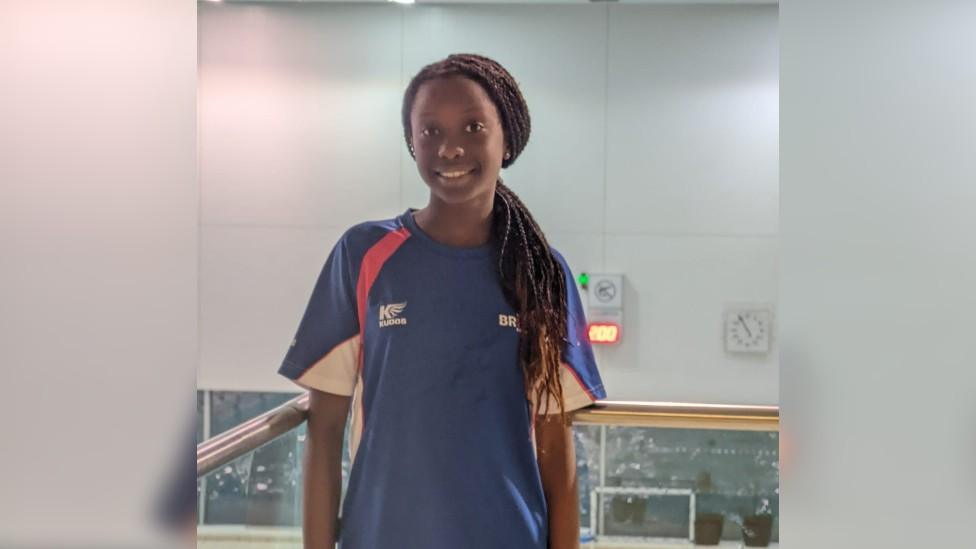
Tami Aromasodu, 13, fell in love with swimming as a child after watching the Olympics 2012 and being inspired by American swimmer Simone Manuel
Marion Britton, 77 who is the welfare officer at the club, has dedicated a lifetime to swimming.
She said: "The sport has been predominantly white and in the past we sat back and let people come to us but we had to reverse and reach out to recruit people."
She said starting from grassroots and outreach is important in making a difference.
A Swim England spokesperson said: "We know ethnically diverse communities are under-represented across aquatics, with only 3.4% of diverse communities swimming regularly compared to 5.5% of white communities.
"Our England Swims campaign, which was launched in May, aimed to make all our sports more accessible and inclusive and we were delighted with the responses we received to the online survey."
The organisation is working on a new 10-year strategy to increase diversity in the water.
Ms Atkinson says since the siblings have joined the club, three more black swimmers have signed up.

Follow BBC West on Facebook, external, Twitter, external and Instagram, external. Send your story ideas to: bristol@bbc.co.uk , external
Related topics
- Published2 September 2022
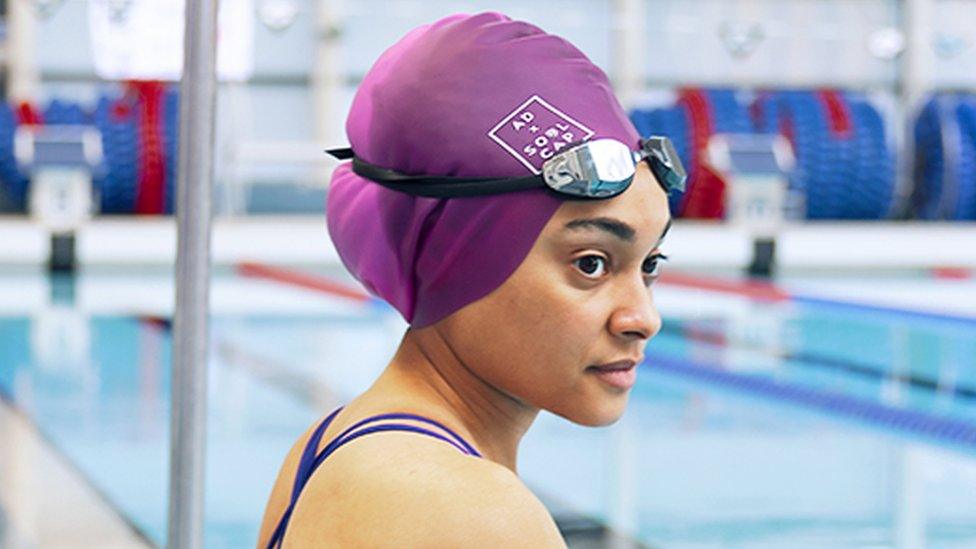
- Published30 January 2022
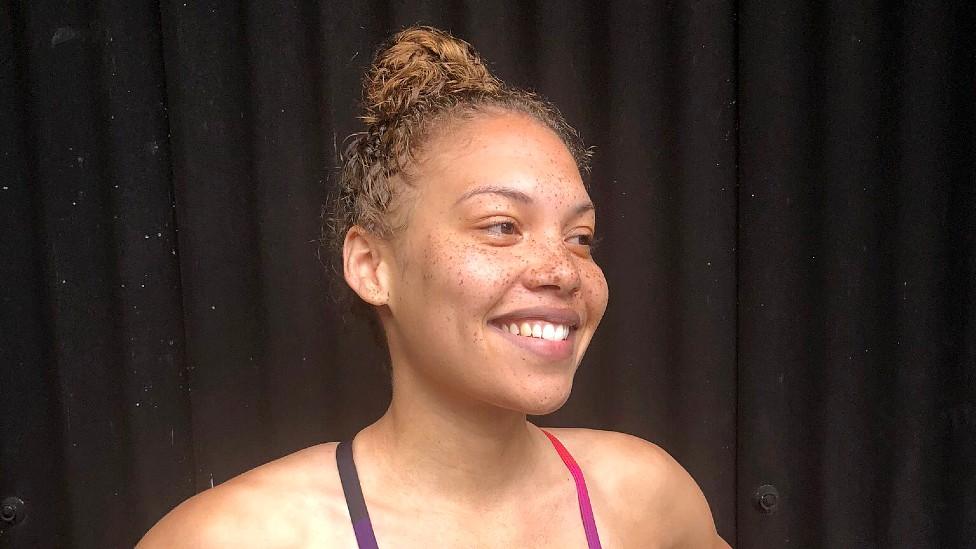
- Published16 July 2021
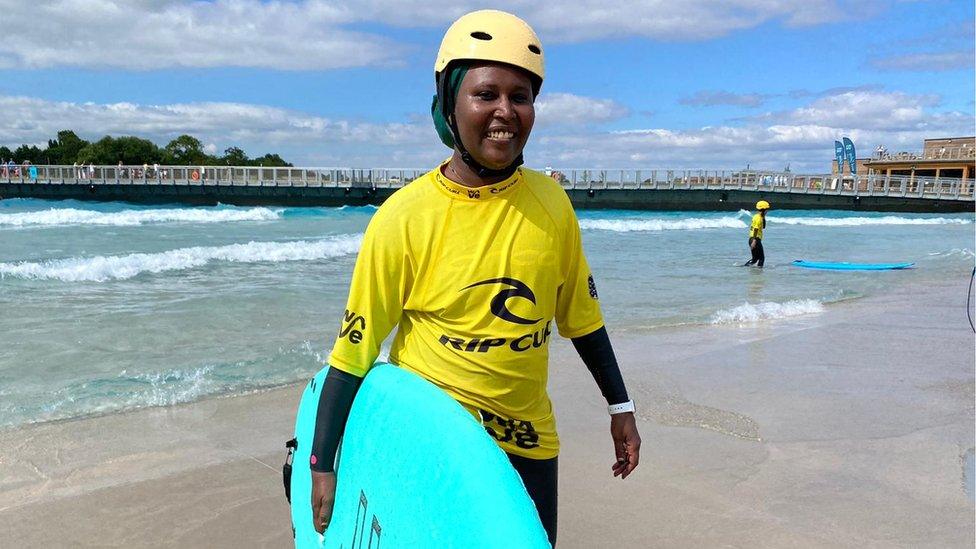
- Attribution
- Published23 February 2021
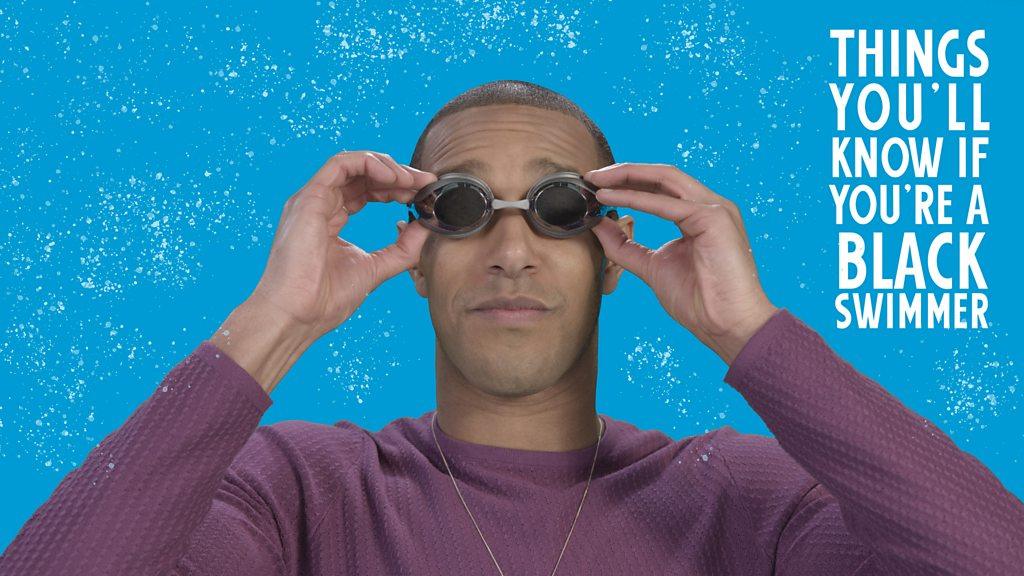
- Published6 August 2019
